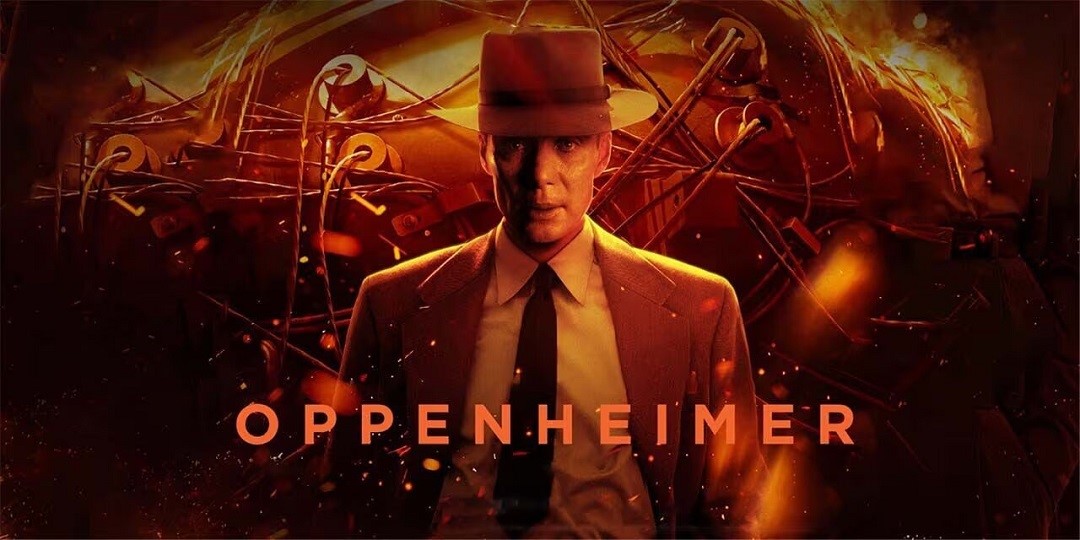Dec. 9, 2024, 12:54 p.m.
Category: Biopic
Oppenheimer: The Man Who Changed the World

Christopher Nolan’s Oppenheimer, released in 2023, is an extraordinary exploration of one of history’s most pivotal and complex figures, J. Robert Oppenheimer. Known as the "father of the atomic bomb," Oppenheimer was both a scientific genius and a man haunted by the consequences of his groundbreaking work. Nolan, a master of cinematic storytelling, brings Oppenheimer’s story to life in a gripping and thought-provoking film that blends historical drama, moral inquiry, and psychological depth.
The Story of a Revolutionary Mind
Oppenheimer delves into the life of J. Robert Oppenheimer (played by Cillian Murphy), chronicling his rise as a brilliant physicist and his leadership of the Manhattan Project, which developed the first nuclear weapons during World War II. The film isn’t just about the bomb; it’s about the man behind it—his motivations, his doubts, and the moral dilemmas that defined his legacy.
Nolan masterfully balances the scientific, political, and personal facets of Oppenheimer’s life. The film captures the intense pressure of the Manhattan Project, where the race against time and the threat of Nazi Germany’s advancements pushed Oppenheimer and his team to the brink. At the same time, it explores his inner turmoil, as the weight of his creation and its devastating potential became impossible to ignore.
A Character Study of Guilt and Responsibility
One of the film’s most compelling aspects is its focus on Oppenheimer’s psychological struggles. Nolan doesn’t shy away from depicting the moral ambiguity of his achievements. The infamous Trinity Test is a pivotal moment, showcasing both the awe of scientific discovery and the dread of its destructive power.
Cillian Murphy’s performance is mesmerising. He portrays Oppenheimer as a man of immense intellect and deep vulnerability, capturing the essence of someone torn between his pursuit of knowledge and his sense of responsibility for the consequences of his work. Murphy’s nuanced portrayal allows the audience to empathise with a figure often viewed through the lens of history as either a hero or a villain.
A Stellar Supporting Cast
The supporting cast in Oppenheimer is equally impressive. Emily Blunt delivers a powerful performance as Katherine “Kitty” Oppenheimer, Robert’s wife, who struggles with her own challenges while standing by her husband during his most tumultuous moments. Robert Downey Jr., as Lewis Strauss, and Matt Damon, as General Leslie Groves, also bring depth and gravitas to their roles, rounding out a cast that elevates the film’s emotional and narrative impact.
Nolan’s Signature Vision
True to Nolan’s style, Oppenheimer is a technical marvel. The film’s non-linear narrative weaves together different periods of Oppenheimer’s life, creating a tapestry of events that slowly reveal the man behind the history. The cinematography, by Hoyte van Hoytema, captures the stark beauty of the desert landscapes and the harrowing intensity of the atomic bomb tests.
The score, composed by Ludwig Göransson, heightens the tension and drama, immersing the audience in the film’s emotional core. Combined with Nolan’s meticulous attention to detail, Oppenheimer becomes a sensory and intellectual experience.
Why Oppenheimer Matters
Oppenheimer is more than a biopic—it’s a profound meditation on the intersection of science, morality, and humanity. It forces viewers to grapple with the ethical questions that remain as relevant today as they were during Oppenheimer’s time. How do we balance the pursuit of progress with the potential for destruction? What responsibility do creators bear for the consequences of their work?
Christopher Nolan’s Oppenheimer is a cinematic triumph, a reminder of how the past continues to shape our present and future. It’s a story of brilliance, hubris, and the enduring cost of changing the world.